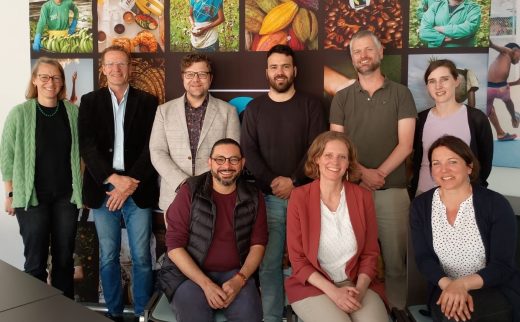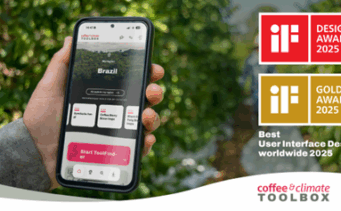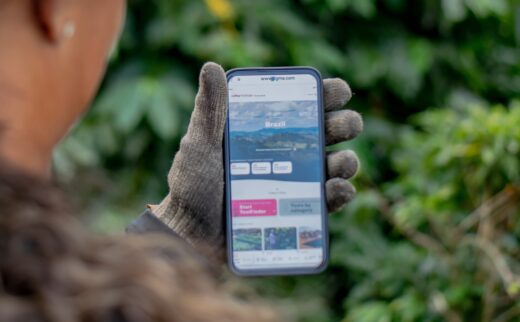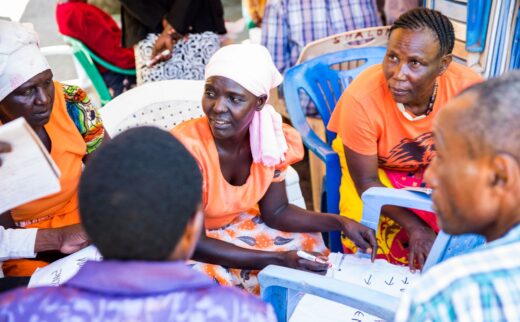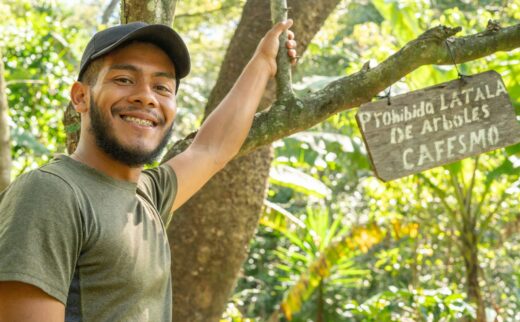Growing Coffee in the Face of Climate Change – Addressing and Mitigating the Impacts
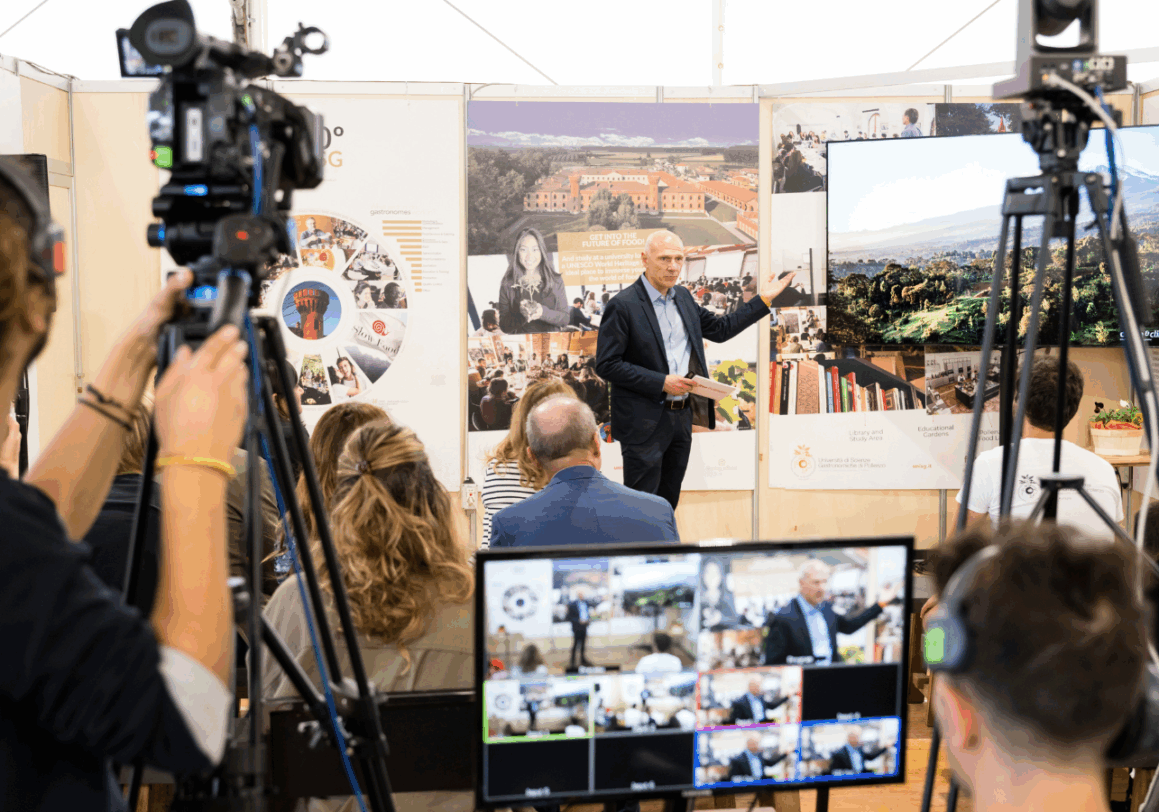
How is climate change impacting coffee farming families? What can be done to mitigate its effects and adapt to them? How can farming families not only become more resilient to climate change but actually improve their living standard – gaining better yields and income? These were the topics of the keynote speech “Growing Coffee in the Face of Climate Change – Addressing and Mitigating the Impacts” by Michael Opitz. We recorded it at the Terra Madre Salone del Gusto 2022 in Turin and published it now as a YouTube Premiere.
Climate change is taking its toll on coffee production. Seasons have already become less distinct and less predictive. In many places, rainfall distribution over the year has become less favorable. The average temperature is further increasing, turning whole areas at certain altitudes unsuitable for the cultivation of this crop.
The International Center for Tropical Agriculture (CIAT) found that the area suitable for coffee production in Honduras might be halved by 2050 due to rising global temperatures if no proper adoption takes place.
Coffee is certainly a crop with specific requirements. That makes it even more susceptible to the alterations climate change poses on tropical regions. According to CIAT, there are five big challenges for coffee cultivation:
- Loss of suitable areas and shift to higher production sites.
- Stress of too much or not enough water.
- Poor flowering and cherry development due to rising temperatures and unreliable seasons.
- Increased outbreaks of pests and diseases.
- Increased challenges on the livelihood situation of the farmer family and particularly women.
“Coffee flowering is one of the key aspects during the development cycle of coffee”, explains Michael Opitz, Managing Director at Hanns R. Neumann Stiftung (HRNS), the foundation that implements the c&c projects. “Flowering usually gets triggered by short rains at the end of the dry period that stimulate the opening of the buds. However, an increase in rainfall during this time leads to weak flowering. Drought and high temperatures thereafter can lead to flower and fruit abortions, increased bean defects, reduced berry growth, and acceleration of ripening – all detrimental to yield and coffee quality.” This is one example. In the seven countries where c&c is active – Indonesia, Ethiopia, Tanzania, Uganda, Brazil, Honduras, and Guatemala, farmers are dealing with different challenges that are being observed and worked on.
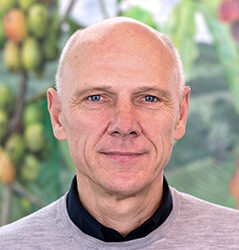
We focus on agronomic practices but with a holistic view on rural livelihoods: We also address income improvement, diversification, food security, gender equality, perspectives for youth, and community-based development beyond the farm level.
c&c generates knowledge for supporting coffee farming communities to mitigate the impacts of climate change on the one hand and to better adapt to them on the other. Mitigation addresses the root causes of climate change, e. g. through capturing and storing carbon. Adaptation, however, is more complex.
Climate-smart techniques with the benefit of increasing yields
How does it work? “Farmers start with assessing climate risks for their region and at their farms”, describes Michael Opitz the process. “Based on that, we support them in identifying tools that could strengthen their production system.” Farmers absolve training in good agricultural practices, pruning, appropriate use of fertilizers, learn about climate-smart practices such as soil cover, mulching, planting shade trees and improved coffee varieties, and establish diversified agroforestry systems. They start using water trenches to harvest rainwater and drain it in case of heavy rainfalls, bringing out compost, utilizing alternative energy sources, etc. All these techniques help the farmers to increase their yield in coffee and also in food crops. This enhances their food security as well as their income.
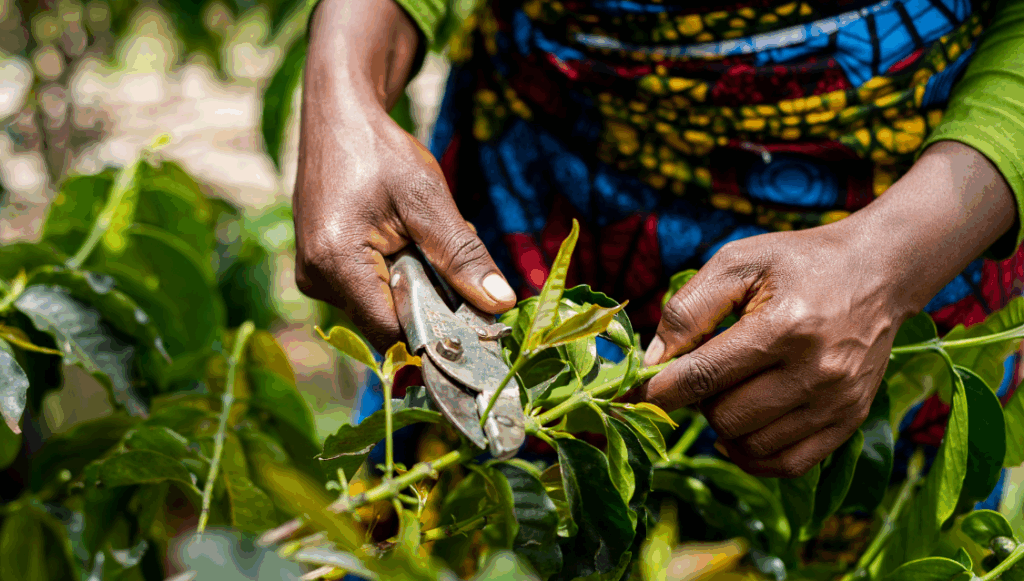
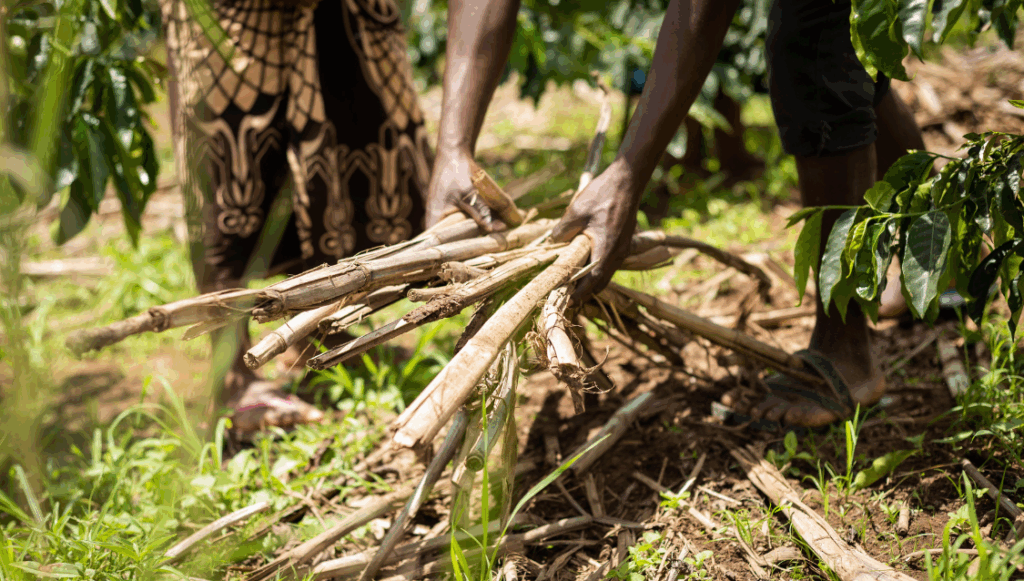
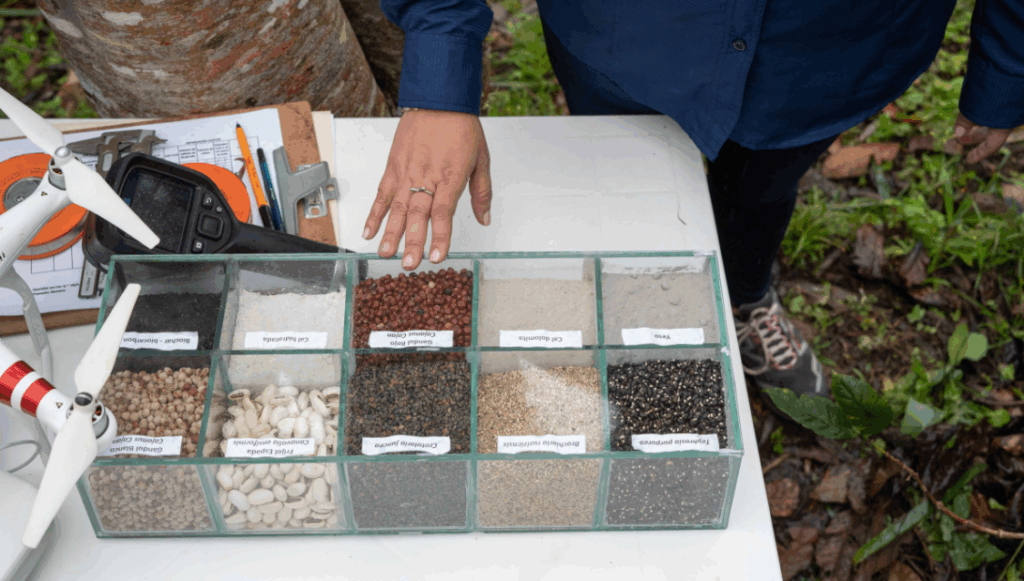

Farmers in the c&c projects have better chances to deal with climate change and escape poverty. The better revenues enable them to invest in their farm and family, for example in education or health care.
The seven countries in which c&c is active are representing 60 % of global coffee production and 50 % of the global coffee producer community. We are working with all our forces towards a climate-smart future of coffee farming. Still, there is a lot that needs to be done. Michael Opitz urges industry and society to become more aware and also points out possibilities to join c&c’s action.

The IPCC Report 2022 was alarming! But change is happening much faster than we thought and at the worst end of projections. We need to get faster in what we are doing. And we need to be united in our action.
c&c was founded by International Coffee Partners (ICP) and the Deutsche Gesellschaft für Internationale Zusammenarbeit (GIZ) and works as an initiative of private and public partners. Therefore, c&c offers lots of interfaces to work together: “c&c is open to new memberships, and more like-minded companies and partners are invited to join”, emphasizes Opitz. “We are furthermore establishing Communities of Practice, learning groups of local actors and producers with first-hand experience, that come together to exchange and advance knowledge on site. Our c&c toolbox is an open online platform with materials about climate-smart practices and tools, freely accessible to everyone in the world. We are also offering Trainings of Trainers as a service to actors in the coffee sector. And last but not least, with our concept of climate-smart coffee regions, we invite all different actors in a region to come together and align their actions towards a climate-smart future of coffee.”
Developing climate-smart techniques and providing them on large scale can support more and more coffee-farming families in achieving better climate change resilience and a higher standard of living. For this, we need to work together.
Watch the full keynote speech by Michael Opitz here:
You are currently viewing a placeholder content from YouTube. To access the actual content, click the button below. Please note that doing so will share data with third-party providers.
More Information